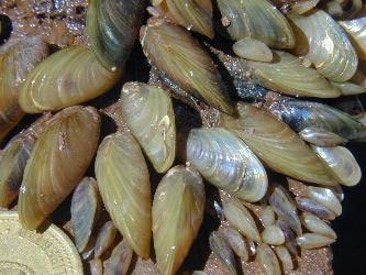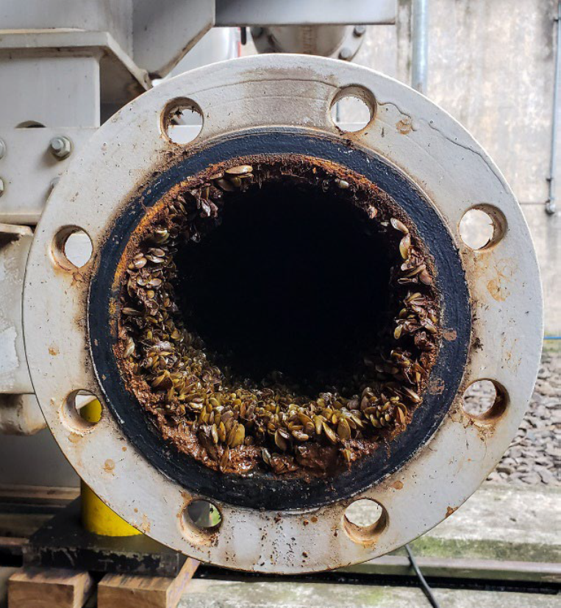NID closes foothill boat launches to address threat of invasive golden mussels
No motorized watercraft allowed on Scotts Flat and Rollins reservoirs

(Grass Valley – Dec. 10, 2024) The Nevada Irrigation District (NID) is taking immediate proactive action to keep out highly destructive invasive golden mussels from the District’s waterways. To address the immediate threat, the District will close all boat launches to motorized watercraft at Scotts Flat and Rollins reservoirs until more information and direction from State officials is known.
The freshwater bivalve can block water intakes and infrastructure, harm native species, increase water clarity due to intense filter feeding and diminish water quality.
“NID will immediately implement a temporary boat launch closure due to the recent discovery of the golden mussel in the Sacramento–San Joaquin Delta. The golden mussel is probably one of the most invasive species we could get and would not only destroy our powerhouses but could also overtake the canal systems,” said Greg Jones, NID’s assistant general manager.
On October 17, the California Department of Water Resources (DWR) reported finding adult golden mussels at the Port of Stockton. The species is originally from China and Southeast Asia, and it was the first time they had been detected in North America. State officials called the situation a "significant immediate threat."

One concern is the mussels will spread to other waterways, such as NID reservoirs in the foothills. To address the immediate threat, the District will temporarily close all launches to motorized boats at Scotts Flat and Rollins reservoirs. This includes Long Ravine, Orchard Springs and Greenhorn at Rollins, as well as the Scotts Flat boat launches on both the Cascade Shores and Scotts Flat sides.
“While no golden mussel has been detected at NID facilities, we cannot take a chance,” Jones said. “This invasive species can establish in lower elevation reservoirs with low total calcium levels and could significantly damage the District’s infrastructure and the ecology of waterbodies.”
“The biggest risk right now is from fishing boats, and we are already getting fishing derbies wanting to relocate to Rollins due to similar reservoir closures in the northern California foothills,” Jones said. “Many of the fishing boats move in between the Delta and the Sierra foothill lakes during this time of the year, which increases the risk of transporting the golden mussel.”
The launch closure will remain as NID develops new protocols for boat launching at its facilities. NID currently works with the California Department of Fish and Wildlife (CDFW) to educate on quagga/zebra mussels, and will work with CDFW on potentially enhancing monitoring efforts and communicate additional detection and response information.
Currently, NID operates an aquatic invasive species prevention program to assess the vulnerability and prevent the introduction of quagga and zebra mussels. At all District reservoirs, boaters are requested to inspect their motorized watercraft and trailers. None of these species have been found in NID’s reservoir system.
Quagga and zebra mussels are small – about the size of a thumbnail – while golden mussels can reach up to 1.5 inches in length. And, up to 200,000 can form a single colony to clog infrastructure. And as filter feeders, the mussels consume large quantities of plankton and other microscopic organisms that form the base of the aquatic food chain. The ability of golden mussels to carry out their lifecycles in large numbers differs from quagga and zebra mussels in that they can establish in waters with very low calcium, making them a greater threat to NID’s and California’s lower elevation waterbodies.
Read more on the California Department of Fish and Wildlife website: California’s Invaders: Golden Mussel (2024). https://wildlife.ca.gov/Conservation/Invasives/Species/Golden-Mussel
